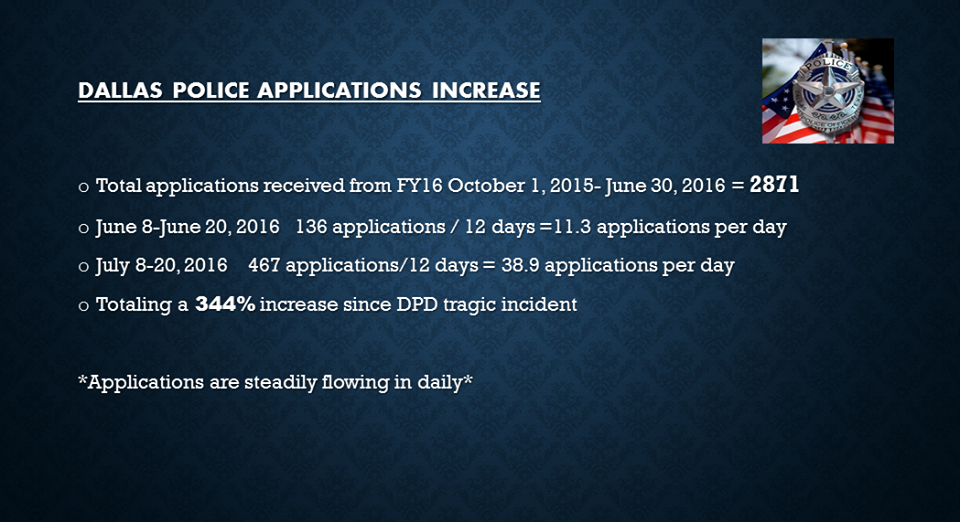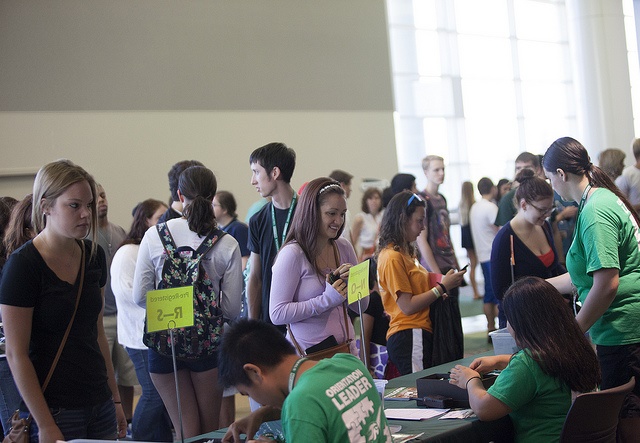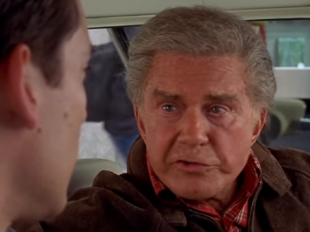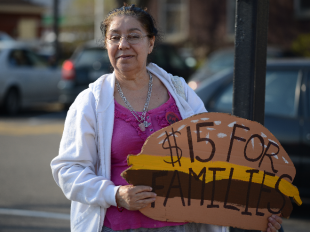The Declaration of Independence states that our inalienable rights include “life, liberty, and the pursuit of happiness.” Life and liberty are easy to understand, but that last phrase is less intuitive. How can people have a right to strive for happiness?
Learn More
Uniting to Fight Poverty: A TED Talk
How do we solve problems like poverty with so much political polarization?
Welcome to the Pursuit
To pursue our happiness, to achieve our liberty, and indeed to find fulfillment in our lives, we must start with a moral consensus, a fundamental truth around which we all revolve. Think of an atom. The outer field of electrons is full of chaotic activity. Electrons are rapidly orbiting and moving in a constant buzz. What contains that chaos and gives it structure? The fact that the whole chaotic cloud orbits one central nucleus.

Good News Story of the Week: Dallas Police Department Applications Triple After Shootings
It’s only Monday, but the good news story of the week has to be that the Dallas police force has seen job applications triple since Chief David Brown challenged people disenchanted with policing to become part of the solution. The Dallas police came under...
read more
Getting Back to Work: Not Merely Happiness, But Human Fulfillment
“Getting Back to Work” is an essay by economist Michael Strain on how the U.S. federal government can help workers succeed and achieve self-actualization. It is part of the “Room to Grow” series by the Conservative Reform Network, which began with the goal of developing innovative solutions to challenges facing the U.S., challenges largely created by an overindulgence among politicians to engineer social outcomes.
read more
How Advanced Placement Classes Leave Kids Underprepared for College
A fascinating article that compares how well students perform in high school advanced placement classes and how they perform in college exposes the terrible disconnect created by high schools in teaching students how to think and hold critical discussion that occurs at the college level.
read more
Hillbilly Poverty: Trump’s Appeal to Poor Appalachian Whites
The discussion of “hillbilly poverty” — a deep and abiding poverty that has been prevalent, but overlooked, for generations in the Appalachian region — seems to keep coming back to the fore, particularly this election season. It may be because white poverty is a blind spot to many Americans who are either white, but don’t live in poverty, or are non-white and unaware of or too preoccupied with their own identity struggles to worry about the white underclass. Or maybe most Americans are aware, but feel helpless to do anything about it.
read more
Hey, Older Workers: Raise Your Hand If Too Much Work Makes You Dumber
A study cited by the BBC claims that too much work makes you dumber. That’s right, working too many hours after a certain age could be bad for our brains … maybe.
read more
Cognitive Bias and Why We’re Always Right
Everyone has an opinion (like something else) but cognitive bias seems to be edging out debate, fueled in part, no doubt, by the national party conventions. The various forms of cognitive bias creep into our ability to think critically. They offer validation, and...
read more
Why Americans Aren’t Saving Money: It’s Not a Reassuring Explanation
A new study explains why Americans aren’t saving money: They are procrastinators who don’t understand math. Yes, it’s a sad state of affairs. The two-fold problem, according to the study published in the National Bureau of Economic Research, is that Americans like to put off until tomorrow what could be done today, and compounding interest is an illusion to them.
read more
The Insanity of Occupational Licensing — $1,537 for a Shoe Shine Permit
It seems to be a constant uphill battle, but two senators are hoping to create a model for states to follow to reduce the obstacles posed by occupational licensing rules that prevent entrepreneurs from opening businesses.
read more
The Working Poor: When a Job is a Chore
Too few poor Americans work. That may seem obvious, but maybe the reason is not. The most common explanations given by nonworking, poor adults for why they aren’t employed are family and home responsibilities and disability and illness, not inability to find a job....
read more
Who Voted for Brexit? An Analysis of Voter Turnout and Its Implications
Who voted for Brexit? A very interesting analysis on the characteristics and demographics behind Britain’s decision to leave the European Union comes from Zsolt Darvas, a senior fellow at think tank Bruegel in Brussels, Belgium.
Darvas did several regression analyses to find that low-income voters as well as older Britons supported leaving the European Union. Younger people and those with a degree were more likely to vote to stay in the Union.
read more








